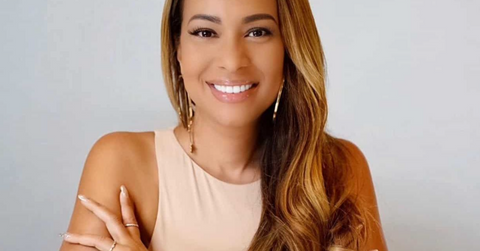She is the daughter of a United States congressman and former congresswoman. Some would say that she was born into the role that she currently occupies—developing an inclusive environment by advocating on behalf of an overlooked group. Valeisha Butterfield Jones began her career nearly 20 years ago at HBO and found herself working for the Obama Campaign, the Alzheimer’s Association, and Google, answering the same call-to-action each time. The executive worked her way up the ranks by grasping onto her will to serve the people, drive to succeed, and a neatly tucked reminder from her mentor.
In May 2020, the Recording Academy hired Butterfield Jones as their first Chief Diversity, Equity & Inclusion Officer, an arena of which she has dedicated much of her career.
Take a peek into Valeisha’s agenda where we chat about diversity in the workplace, snagging a good mentor, overcoming mansplaining, and more.
Her Agenda: Your role at the Recording Academy echoes your previous work at Google, the Obama administration, Alzheimer’s Association, WEEN, and others. Much of it centered around elevating an overlooked group. What attracts you to roles surrounding equity and inclusion? Were you aware early on that this would be your path?
Valeisha Butterfield Jones: I didn’t know that it would be my path but my upbringing, growing up in Wilson, North Carolina, a rural town in an Eastern part of the state in the 80s, I knew early on that I wanted to do something at the intersection of entertainment and activism. Keep in mind we are talking about the 80s. So Diversity, Equity & Inclusion (DEI) as a name didn’t even exist, but it was my passion and my purpose to define that intersection. I always thought I wanted to work in the music business, but when I did, I would gravitate to community engagement, diversity, equity, and inclusion, and other ways to make sure that I was breaking down barriers for our people. That’s where it began. When I look back over the last 20 years of my career, it has always been DEI at the core, even before it was formal. I wake up every single day knowing that it’s what I was born to do.
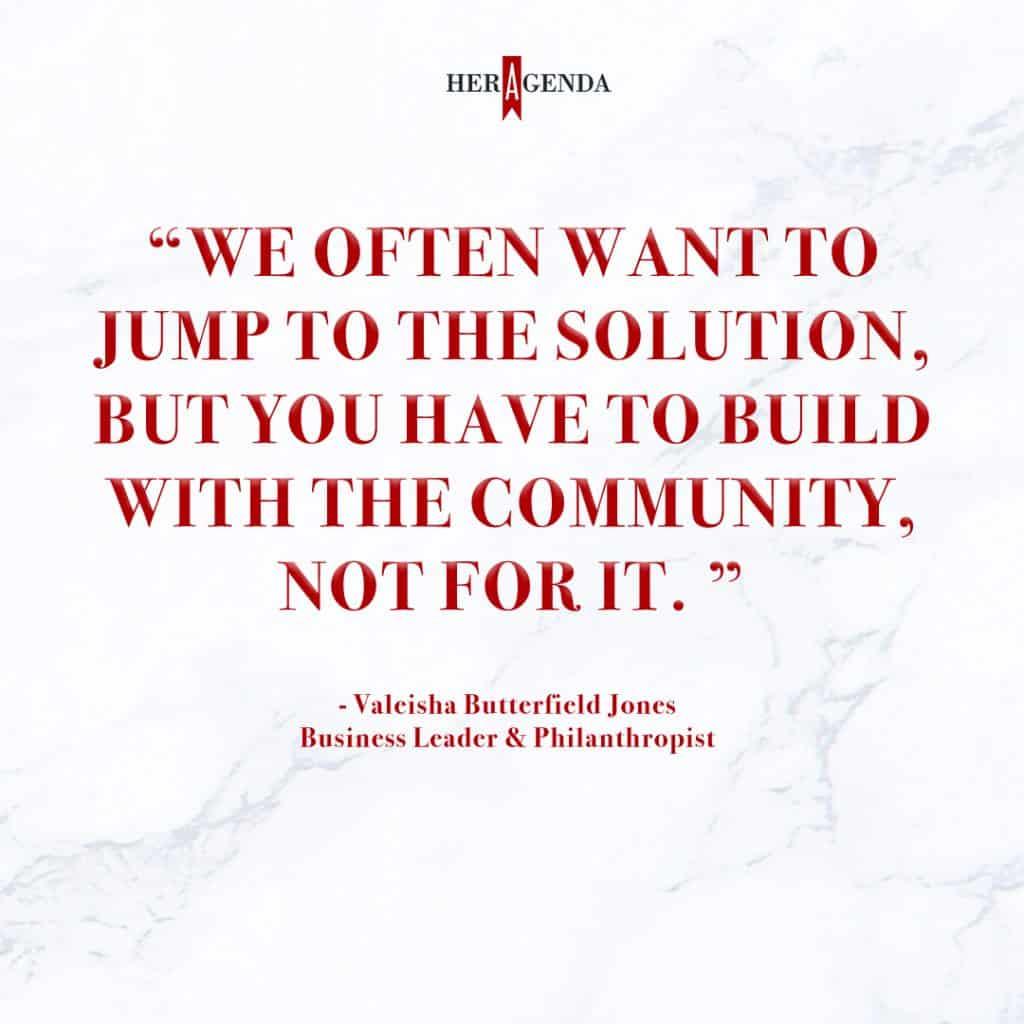
Her Agenda: In light of the recent uprising, there are a lot of companies seeking to right some wrongs and create an environment where their staff feels seen. What are some solutions for carving pathways for minority groups?
Valeisha Butterfield Jones: The first step is looking at your board of directors and leadership to make sure that it is diverse. If not, give yourself one year to make sure that you have a representative leadership bench. Step two is to listen. We often want to jump to the solution, but you have to build with the community, not for it. That’s where a lot of companies went wrong in the beginning. They were building companies in silos and building for a consumer base instead of with it. Having focus groups and listening sessions to develop a strategy together for the work needed within that space. It’s also all of the little things, every single day, that add up and become bias. There are systemic barriers that we need to disrupt. It’s every single person, no matter who they are and no matter the role, taking ownership and saying, ‘within the space that I’m in, I’m going to make sure that we are doing the right thing.’
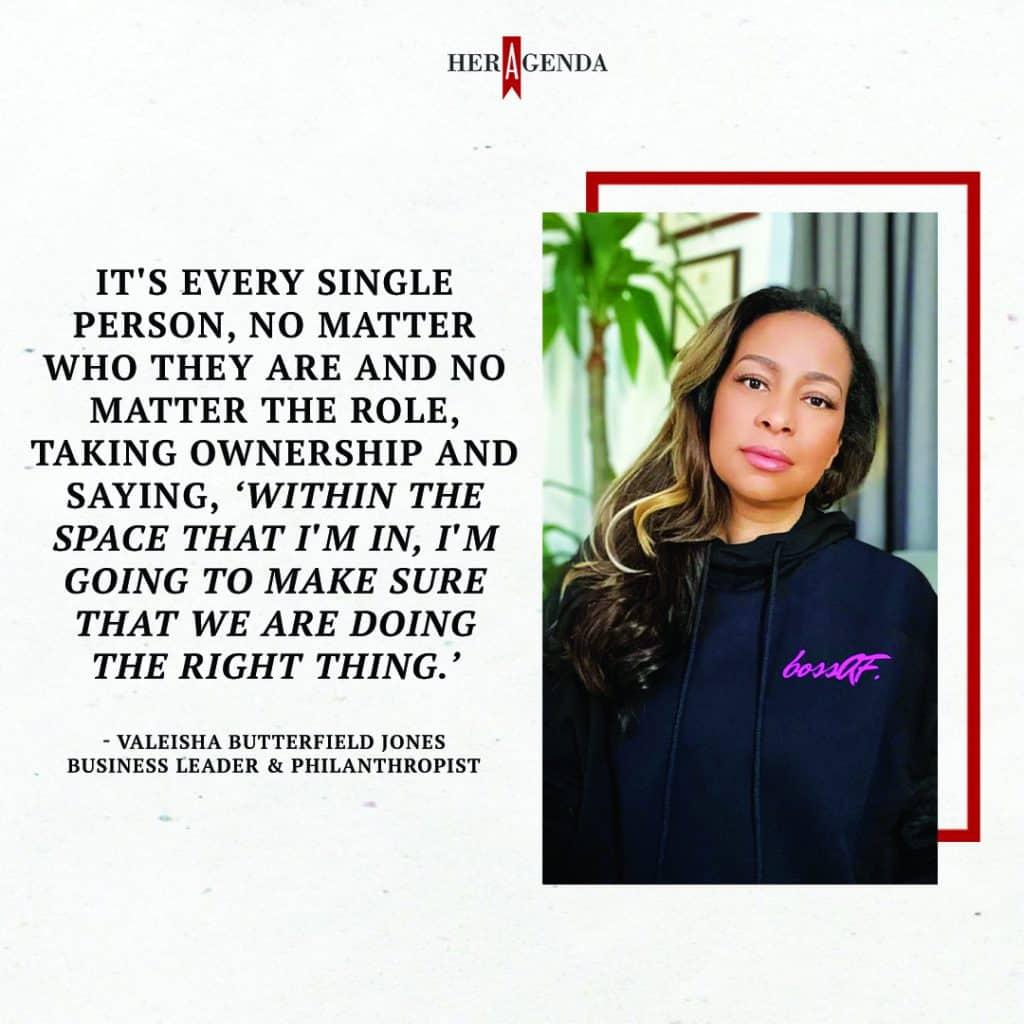
Her Agenda: As a business grows, so does the consumer. Creating an inclusive environment means your product or service will be exceptional because those who are doing the work feel valued.
Valeisha Butterfield Jones: It’s not only the right thing to do, but it’s a business imperative. These companies are going to get left behind if they don’t quickly pivot and make DEI a priority.
Her Agenda: While we’re pivoting, yours is really admirable. Serving the same purpose across a few different industries and later planting your feet at Google and rising in the ranks there, and then into this new role at the Recording Academy. At Google, you led an initiative that taught Blacks at Google how to navigate the corporate ladder. How do you get comfortable and tap into who you are in the workplace?
Valeisha Butterfield Jones: I’ll be honest, when I first accepted the role at Google—although I had 14 years of experience under my belt—I still had imposter syndrome. I looked around and felt like a fish out of water. What am I doing here? What have I done? First, you are worthy. You are enough and wouldn’t have been hired into that role if you were not prepared, qualified, and ready. It’s doing a mental shift and saying I am worthy. I’m enough. I’m here for a reason.
-What I quickly discovered was that it was my life experience—along with what I brought to the table—that made me so uniquely different.
Second, know that when you go into those spaces, the thing that makes you different is the thing that adds value. When you enter, you have the professional and academic experience, and you also have life experience. What I quickly discovered was that it was my life experience—along with what I brought to the table—that made me so uniquely different. Third, use your voice. Don’t shrink, as Elaine Welteroth says, expand. Take up space. Use your voice, be strategic, and get what you deserve in those spaces.

At the end of the day, it’s business, and you want to make sure that the relationship you have with this organization or company is mutually beneficial. Just as much as you’re putting in, you want to make sure that you’re receiving the same—if not more—through compensation, through treatment received by your manager and teammates, and how you’re able to navigate that space. If ever you feel like you’re not welcome there, you have to ask yourself, ‘is this the right space for me? Can I change it?’ If not, you have to make some decisions.
Her Agenda: As a Black woman in leadership across industries, what has your experience been navigating mansplaining? We’re so often the only Black person, woman, etc., and minimize our presence because of discomfort. Eboni K. Williams wrote about showing up as your full self, and in turn, empowering others around you to do the same.
Valeisha Butterfield Jones: A few years ago, when I was the only woman or only Black person, I felt all of those things. Having a seat at the table but not feeling like they want you there.
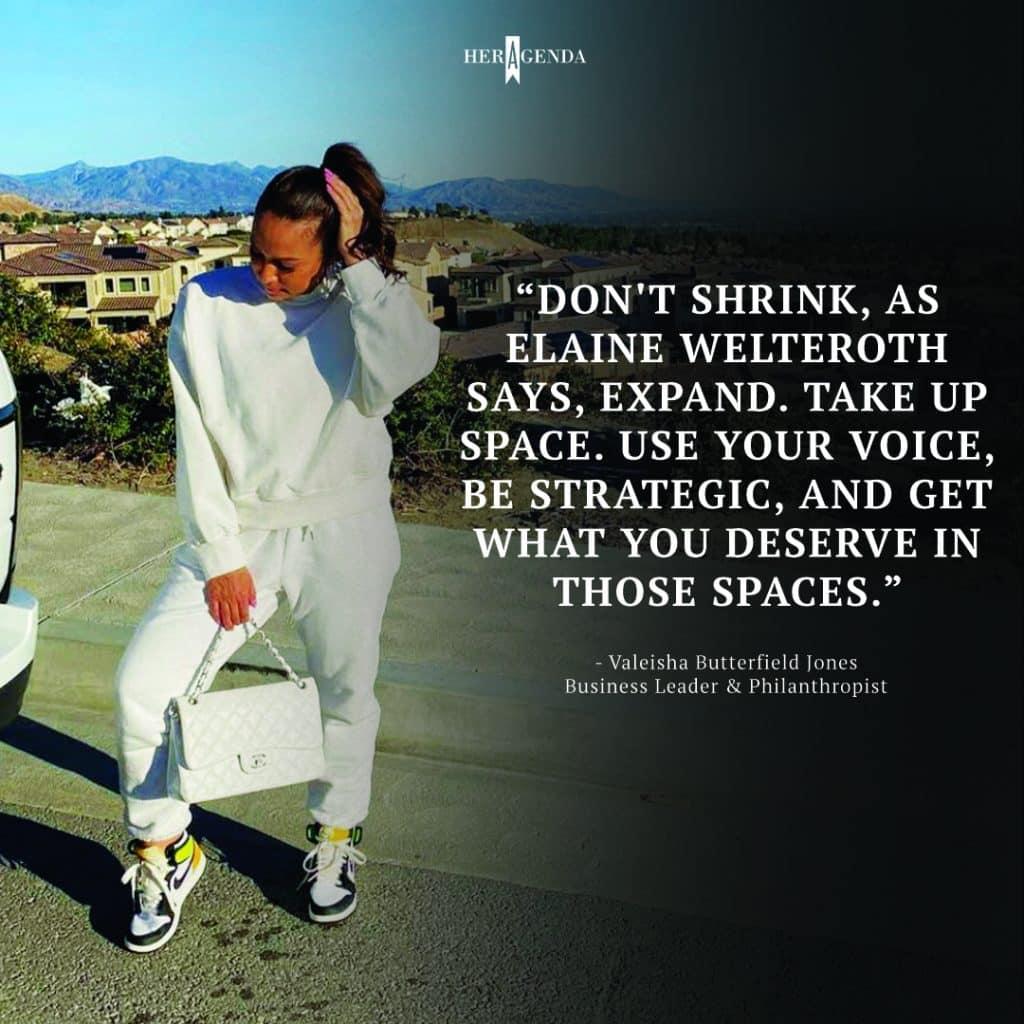
I remember the day I decided to use my voice differently. I was in a meeting sitting at the long conference room table, and it was so stereotypical. I said something, and they brushed over it. I said something else of value, the man next to me said the same thing, and it was acknowledged. I remember going into the bathroom, looking in the mirror, and saying, this ends today.
I won’t say that I don’t still experience it, but the way that I navigate it is different. I figured out my executive presence and my leadership posture in those rooms, and it’s different now. For me, that means the way that I enter the room, looking people in the eye, commanding the room. If I’m interrupted, like VP Kamala Harris, [I let them know] I’m speaking. I course correct at the moment and then continue to do what needs to be done. Creating teachable moments is important, but you’ve got to know where you are in the journey. I wouldn’t have been able to do that, authentically, 10 years ago. I didn’t know my voice yet. I didn’t have my leadership presence and posture figured out. It took some hard knocks for me to get there, but now that I’m here, I don’t play that—at all. I don’t give an attitude. I’m just very direct. I’ve conditioned my environment to know that I’m going to be respected in this room, and if not, I’ll see my way out.
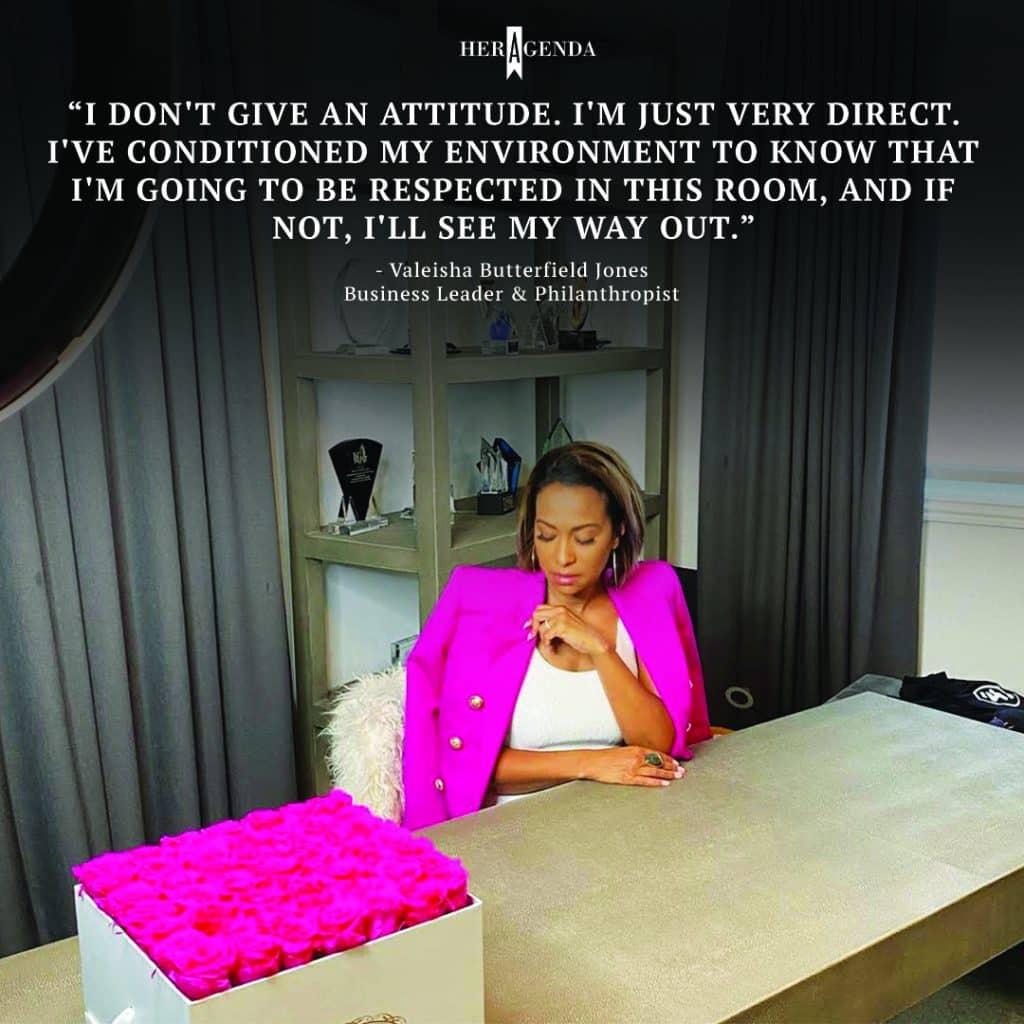
Her Agenda: My mentor emphasizes the importance of finding your professional presence and posture, and channeling that inner voice in the pit of your stomach to make your voice heard.
Valeisha Butterfield Jones: The resistance I had to [speaking up] when I received that advice was that I’m shy and I’m an introvert. In my mind, I felt like I had to be loud or forceful when in reality, I just needed to say the words.
-In my mind, I felt like I had to be loud or forceful when in reality, I just needed to say the words.
Her Agenda: While we’re discussing mentorship, what’s some advice you’ve received that has helped you most throughout your career? Who did it come from?
Valeisha Butterfield Jones: I didn’t understand it at the time, but my mentor, Kevin Liles said to me, early in my career as an intern, you’re a liability and it’s your job to become an asset. He was like, think about it, especially in such a competitive field like entertainment, you have a line wrapped around the block of young people that want to intern to get their foot in the door.
As much as you have invested in this company, they’re investing in you. You’re a liability. Time is money. You have to make sure that you are demonstrating, through your work, through your impact, and through your actions, that you have value, and then you become an asset worth a salary. It probably took me five years to process it because I was in my feelings at the time, but now it all makes sense. What you put in is what you get out.
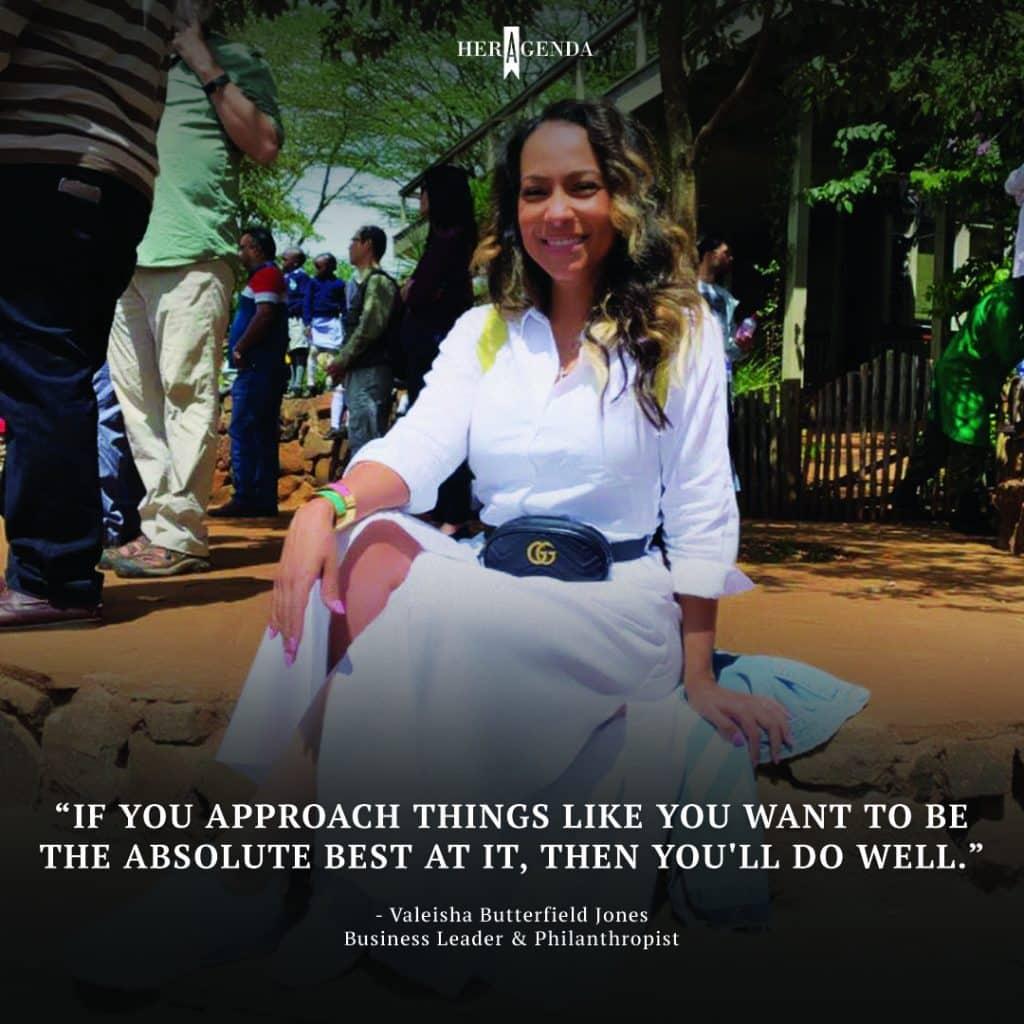
Her Agenda: Finding an exceptional mentor is a huge asset. How integral was that guidance in your overall career trajectory?
Valeisha Butterfield Jones: I’m in a C-suite role now and I still have mentors. I don’t know where I’d be without them. None of us have all the answers. Not only do you want to get into these roles, but you also want to do well and prosper. Instead of going through the motions of my career, it made me truly lock in and say, I want to become an expert. I want to become the go-to person. I want to become an asset.
I think sometimes, with our passion, we get lazy or comfortable. Every day when I show up to work—this is 20 years later—I’m on 10. I’m giving it everything I have. If you approach things like you want to be the absolute best at it, then you’ll do well.
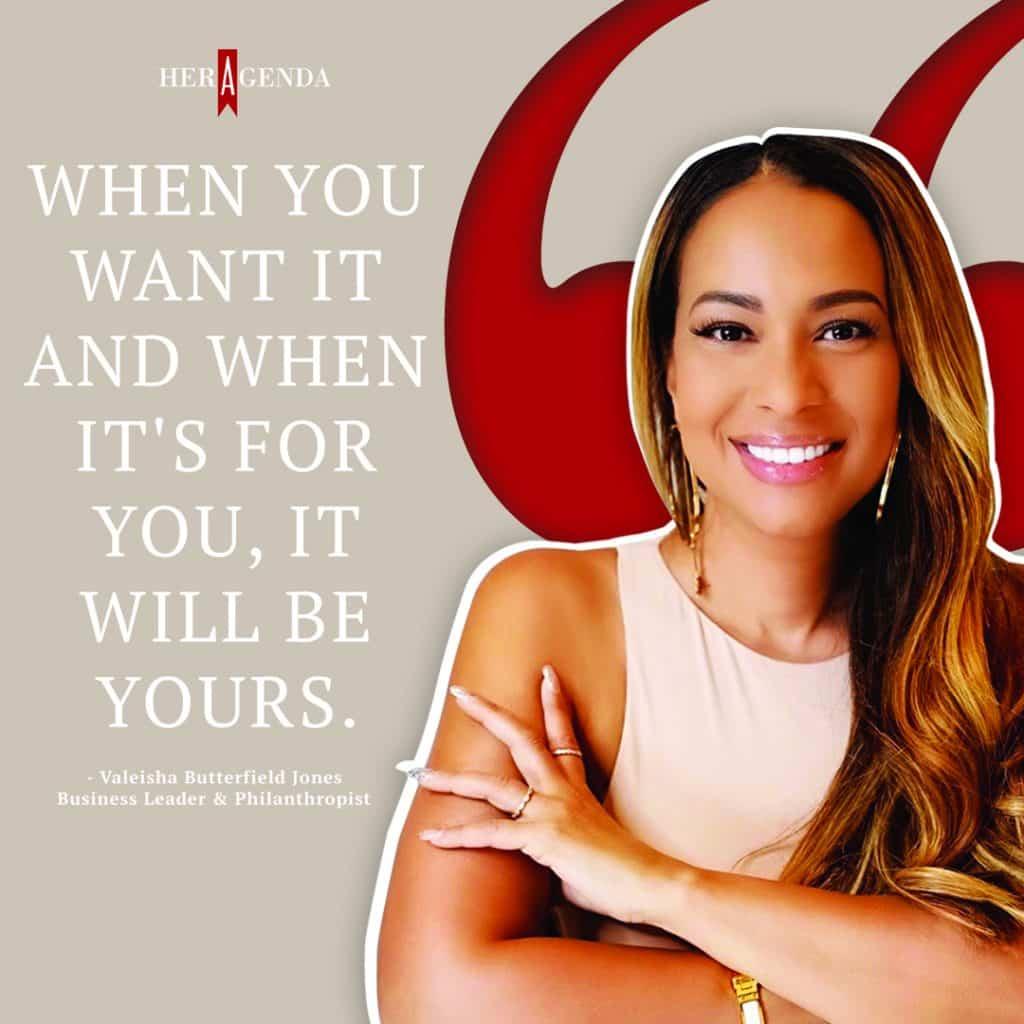
Her Agenda: You’ve reached nearly 100,000 young women through your non-profit. Women in Entertainment Empowerment Network (WEEN). Can we expand on that incredible platform and its origin?
Valeisha Butterfield Jones: WEEN [was] the Women in Entertainment Empowerment Network that started in my one-bedroom apartment in New York City with three of my friends. I had finally gotten into the entertainment industry. I was so excited, and I looked around and said, it should not have been this hard. What can we do to make it more accessible and a bit easier for the young women walking in our footsteps? WEEN began 14 years ago as a way to develop the emerging generation of women leaders in music and across the business.
Each summer we [hosted] WEEN Academy—a hardcore boot camp with a lot of tough love—to make sure that you’re prepared and ready for the entertainment industry and beyond. We’ve placed 86% of our graduates into roles.
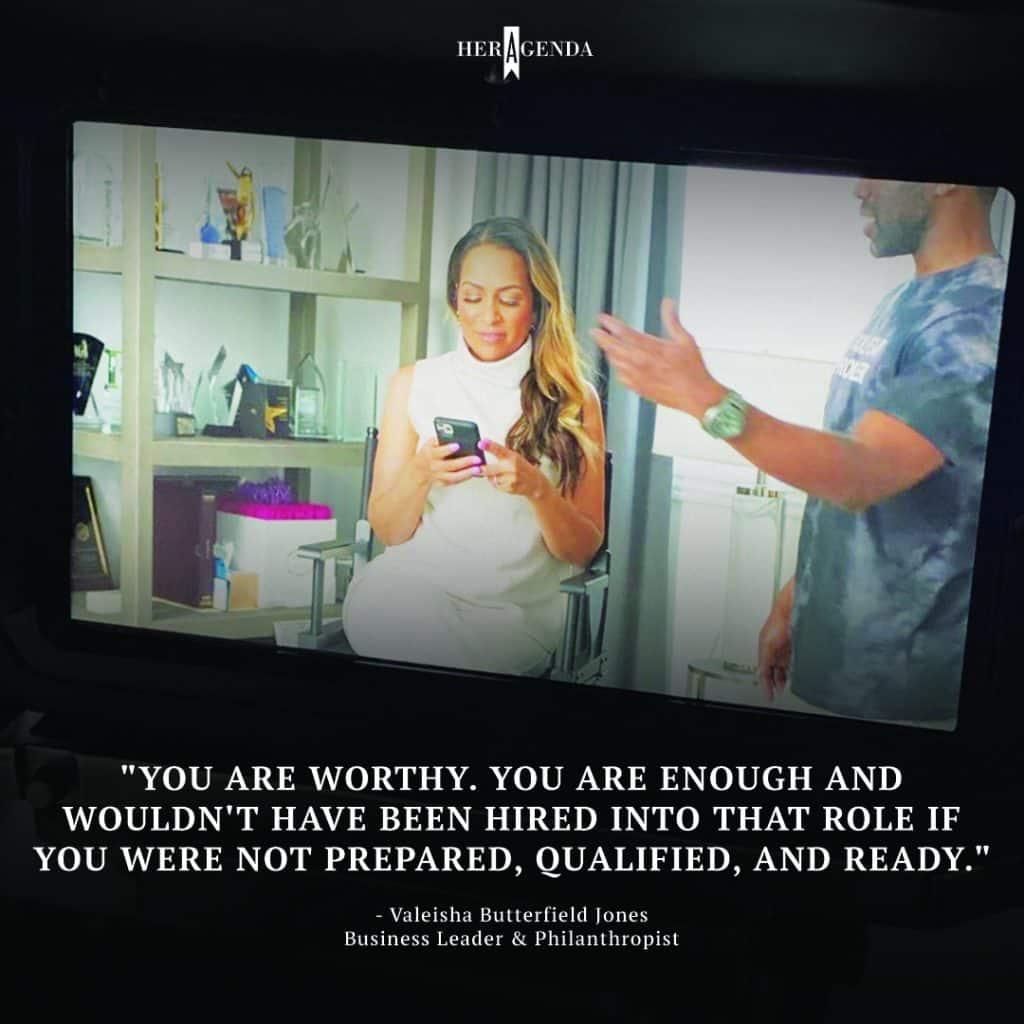
Her Agenda: You recently announced the farewell of WEEN on Instagram. What does this mean for the organization?
Valeisha Butterfield Jones: [WEEN is officially closing.] After [nearly] 15 years and thousands of lives changed, we decided it was time for the next chapter. We thank every single person involved in making an impact through WEEN.
[Editor’s note: This interview has been edited for length and clarity.]

